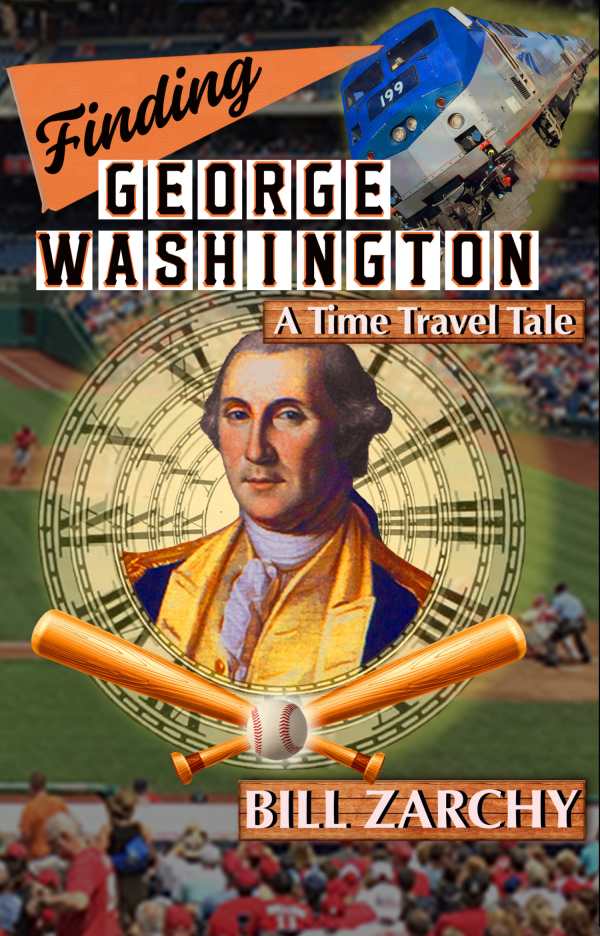Finding George Washington
A Time Travel Tale
Ending with a twist, this time travel novel is a history-minded work that questions which cultural influences best define the US.
In Bill Zarchy’s science fiction novel Finding George Washington, George Washington is temporally displaced; college students work to help him get back to 1778 before his past changes their future.
In 2014, Tim and Matt have been friends for a long time. When Tim meets a man who claims to be George Washington, he’s skeptical; but George’s clothing, behavior, and historical knowledge convince him that the first president has traveled through time. Washington has not yet become president in his own time, though; he disappeared from Valley Forge, where the space he left has dire implications for the country. The longer that Washington stays in 2014, the more the world around Tim and Matt changes, reflecting the possibility of a Revolutionary War loss to England. With the help of clandestine government agents and a few good friends, Tim, Matt, and Washington race to return Washington to his era and save the United States.
Tim and Matt are bright, caring men. Even before they believe Washington’s story, Tim accepts Washington into his home, and both attempt to help him however they can. Matt, who is Black, confronts Washington about his slave ownership and challenges his beliefs, discussing moral relativism and problematic heroes. Some of the conversations are uncomfortable; Matt seems to be the only person bothered by Washington’s history, while his white friends excuse Washington’s positions as a “product of the times.” Matt puts aside his convictions on the topic in order to keep assisting the president.
Though they are a shadowy presence for most of the book, Washington’s undercover enemies lead to challenges and tension. Tim is aware of them, and his thoughts become paranoid. Tim, Matt, and Washington befriend government agents during a meandering subplot involving those who wish to control history, including drug cartels and high-level conspirators. Time travel is addressed more credibly, via references to Albert Einstein, temporal vectors, and government technology and research.
Washington himself is pictured in terms of his dentures, farming knowledge, and interest in war and spycraft. Although he’s befuddled by modern society and technology, he retains dignity and and essence of leadership when he speaks and moves. Entertaining correlations between Washington’s experiences in 2014 and his historical decisions are made: Tim, Matt, and George’s love for baseball ends up influencing his military strategy, for example. As their favorite team heads to the World Series, its experiences mirror the men’s adventure, resulting in levity, even in the midst of massive changes.
As the surroundings morph to reflect the consequences of the lost war, including that colonial towns end up in poorer shape than Tim and Matt remember, the threat of America’s degradation becomes the novel’s main source of conflict; Tim’s romance with a government agent is an excessive addition.
Ending with a twist, the time travel novel Finding George Washington is a history-minded work that questions which cultural influences best define the US.
Reviewed by
Delia Stanley
Disclosure: This article is not an endorsement, but a review. The publisher of this book provided free copies of the book and paid a small fee to have their book reviewed by a professional reviewer. Foreword Reviews and Clarion Reviews make no guarantee that the publisher will receive a positive review. Foreword Magazine, Inc. is disclosing this in accordance with the Federal Trade Commission’s 16 CFR, Part 255.

